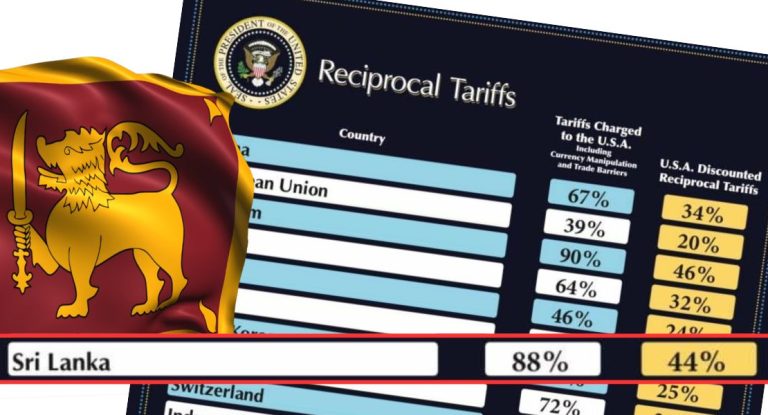The following is based on a presentation by President’s Counsel Sarath Jayamanna, former Director-General of the Bribery Commission, during an educational workshop organized by the We Have a Dream Collective on January 19, 2024.
Introduction
Sri Lanka, a nation endowed with vast resources, is strategically located as a bridge between Europe and Asia. However, despite these advantages, the country has been plagued by inefficiencies and corruption, hindering its development. In contrast, countries like Singapore, with limited natural resources, have flourished under strong leadership and efficient governance. Singapore’s transformation under the leadership of Lee Kuan Yew was largely attributed to the development of a skilled and disciplined civil service.
In Sri Lanka, labour strikes and inefficiencies in port services have allowed competitors like Singapore to capitalize on the opportunities. Corruption among politicians and public officials has been a persistent issue, requiring decisive leadership and robust anti-corruption measures. Lee Kuan Yew’s handling of corruption allegations against a minister in Singapore exemplifies the level of integrity required to address such issues effectively.
Background of the Anti-Corruption Act
Understanding the context and background of the Anti-Corruption Act of 2023 is crucial. Despite previous legislative efforts, corruption continues to erode public resources and trust in countries like Sri Lanka. Research and studies on corruption are limited, and the issue has deeply infiltrated the social fabric.
Education and Prevention
To change society, it is essential to focus on educating children. Legal measures and punishments alone cannot eradicate corruption. The responsibility of improving the integrity of officials has been entrusted to the Commission to Investigate Allegations of Bribery or Corruption under the new Act. The presumption of innocence until proven guilty remains a cornerstone of Sri Lankan law. However, to overturn this presumption, evidence beyond reasonable doubt is required.
Investigations into corruption are primarily conducted by the Sri Lankan Police. For non-serious offences, cases are filed directly with the Magistrates’ Court. The prosecution is handled by the police, although the victim’s lawyer can also manage the case. A suspect can be remanded for 14 days, extendable with the magistrate’s permission. Serious crimes are referred to the Attorney General’s Department for guidance, leading to prosecutions in the High Court. Appeals against decisions can be made in higher courts, with the Supreme Court’s ruling being final.
Legislative Framework
The Penal Code, introduced in 1883, defines what constitutes a legal offence. In 1995, it was amended to address offenses such as child abuse under Section 364. Currently, a significant number of abuse cases are examined in courts.
Case delays are a significant problem in Sri Lanka, affecting bribery and corruption cases. Creative leadership and effective management are necessary to address this issue. The Bribery Act was introduced in 1954, defining bribery as a public official receiving undue benefits, such as money, commissions, or services. The new Act broadens this definition to include sexual favours and electronic methods of solicitation, addressing previous gaps.
Initially, the Criminal Investigation Department conducted investigations under the 1954 Act. In 1958, the Department of Bribery was established under a Director-General to handle investigations. In 1989, a landmark case involving a police accountant accused of bribery was prosecuted. Evidence was compiled by the Department of Bribery and submitted to the Attorney General, who managed the prosecution.
Establishment of the Independent Commission
In the early 1990s, Professor G.L. Peiris promised to establish an independent commission for bribery investigations. This was eventually created, but the practical implementation faced challenges. Commissioners were appointed, including two retired judges and a former senior police officer with investigative experience. The failure to recognize bribery as a specialized investigation area was a significant oversight.
Hong Kong, a former British colony, faced rampant corruption. A public outcry led to the arrest and imprisonment of the Police Commissioner, resulting in reforms that excluded police officers from bribery investigations. During my tenure as Director-General of the Bribery Commission, I sought assistance from Hong Kong to train investigative officers. At that time, Hong Kong ranked 15th among countries that successfully eradicated corruption. Their response indicated that Sri Lanka’s Bribery Commission lacked independence due to continued police involvement in investigations. Discussions with Hong Kong’s Commissioner revealed that independent investigators could assist Sri Lanka if hired.
The Bribery Commission requires multiple approvals to recruit degree holders as investigators. The biggest obstacles came from institutions like the Treasury’s Salary and Cadre Commission, rather than the President. Countries like Bhutan, Hong Kong, and Fiji employ highly paid, qualified investigators. During my tenure as Director-General, efforts were made to recruit 200 graduates as investigative officers. However, they have not yet been integrated into the Commission. The new Act allows the Commission to hire necessary investigators as needed.
Powers and Provisions of the New Act
Under the 1994 Act, the Commission was granted powers to prosecute cases and manage complaints. However, legal officers were needed for these tasks. These legal officers were paid one-third of what lawyers in the Attorney General’s Department received, making it unattractive for competent individuals. Efforts to change this situation have been unsuccessful due to bureaucratic challenges.
Under the new Act, the Commission must present its budget to Parliament, subject to parliamentary approval and auditing by the Auditor General. The Auditor General’s reports, although weak as evidence, cannot be used to file cases. The Auditor General does not investigate bribery cases.
The term “corruption” was absent from the 1954 Bribery Act, which remained in effect until 1994. The 1994 Commission to Investigate Allegations of Bribery or Corruption Act recognized corruption as an offence. Corruption is defined as a decision made with malicious intent, intending to provide undue advantage or disadvantage to someone or cause loss to the government. Proving malicious intent is challenging and requires circumstantial evidence. Investigations under the new Act are conducted by the Commission to Investigate Allegations of Bribery or Corruption, with no police involvement.
If public officials possess assets or liabilities disproportionate to their income, the law presumes it is derived from bribery. In such cases, the Commission can file cases. During investigations, executive-level officials must declare their assets and liabilities according to the 1975 Assets and Liabilities Act. If explanations for the assets are unsatisfactory, cases are filed. In 2018, local and international experts identified gaps in the assets and liabilities law and declarations.
Previously, even the President was not required to declare assets and liabilities. This has changed under the new law. Some lower-level officials with significant influence, such as land registrars, were not required to declare assets. Under the new law, officials in positions prone to bribery or corruption can be designated to declare assets through a gazette.
Previously, only assets and income were considered. The new Act considers expenses and affiliations with other institutions. Public officials must declare assets and liabilities for the year ending March 31 by June 30. Under the new Act, declarations must be submitted whenever income exceeds one million, and for two years after leaving public service.
Under the old law, ministers declared assets and liabilities to the President, without needing acknowledgement. Under the new Act, declarations must be submitted to a separate unit within the Bribery Commission. This must be done electronically. In 2018-19, an electronic declaration system was developed, allowing for updates and acknowledgement of submission. Edits can be made within a week or two.
Failure to submit asset and liability declarations under the new Act can result in a fine of 200,000 rupees and a three-year prison sentence. A one-month delay incurs a surcharge equal to a month’s salary, while a two-month delay incurs a surcharge six times the monthly salary. Investigations begin after three months of filing cases.
The new Act allows electronic access to information on assets like vehicles and land from institutions. Regardless of other laws, individuals must provide information when requested by the Bribery Commission, and non-compliance is a criminal offence.
Positive cultural attributes are used for public access to asset and liability information. If false information is deliberately provided to the Bribery Commission, legal action can be taken against the individual. There are challenges related to public access to asset and liability declarations. Under the new law, edited declarations can be accessed online, providing details such as land ownership and bank account numbers.
No law can fully satisfy everyone. Corruption and bribery are not included in the curricula of Sri Lankan universities and law faculties, hindering the development of experts in this field. The Department of Legal Draughtsman also lacks specialists in this area. Efforts to change this include incorporating this section into the postgraduate law degree at the University of Colombo.
Previously, the Department of Bribery only had the power to investigate. In 1994, they gained the authority to prosecute cases and manage complaints, although reliance on the Attorney General’s Department continued.
Addressing Root Causes and Private Sector Involvement
The root of bribery and corruption lies in conflicts of interest. Under the new Act, officials must disclose conflicts of interest when making decisions, and failure to do so is a criminal offence.
Bribery also occurs in the private sector. The new Act defines bribery solicitation and acceptance by senior company officials as offences, including those related to sports activities. Officials, witnesses, and whistleblowers are protected, and money laundering investigations can be conducted.
Investigators are prohibited from disclosing investigation details to external parties. Under Section 9 of the Right to Information







